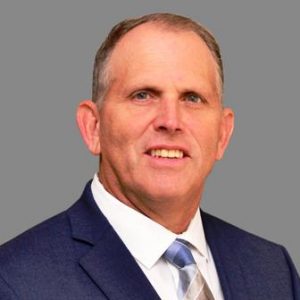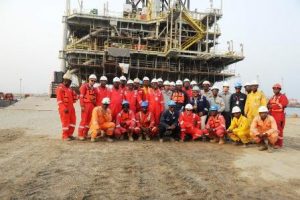Before the enactment of the Nigerian Oil and Gas Industry Content Development (NOGICD) Act in 2010, only a few International Oil Companies (IOCs) had deliberately put in place policies to build, enhance and sustain the capacity of indigenous companies and contractors to enable them to fully participate in Nigeria’s oil and gas industry.
Eight years after the Act was enacted, the situation has changed significantly as recently emphasized by Engr. Simbi Kesiye Wabote, the Executive Secretary, the Nigerian Content Development Monitoring Board (NCDMB). According to him, “Before the NOGICD Act, only 3 per cent of the marine vessels used in the industry belonged to Nigerians, but today, Nigerians control and own 36 per cent of vessels. From a zero active dry-dock facilities for vessels, the country now has four active dry-docking facilities and over 35,000 jobs have been created as a result of the NOGICD Act.”
Also, local businesses have been empowered to handle fabrication of more than 60,000 tons; manufacturing of cables bolts, nuts and flanges and assembling of offshore Christmas trees as well as infrastructure for integration of Floating Production Storage and Offloading (FPSO) facilities.
Chevron Nigeria Limited (CNL), with its affiliates in the country, is one of the IOCs that had a pre-NOGICD policy in place and has in the post-NOGICD era remained committed to Nigerian Content Development (NCD) by partnering with the NCDMB to significantly grow Nigerian Content in the oil and gas industry.
In its 2017 Corporate Responsibility Report, CNL states that the company’s investment in NC was approximately US$2 billion while procurement of materials through Local Community Contractors (LCC) and cost of services provided by indigenous companies were $74 million and $284 million respectively. CNL’s four-prong approach to NCD includes: selection of qualified local contractors; facilitation of partnerships and alliances between indigenous companies and foreign firms; capacity building; and development of local competencies.
Chairman/Managing Director, CNL, Jeff Ewing, explains the company’s stance on NCD thus: “At Chevron Nigeria Limited, we demonstrate our commitment to the socio-economic development of Nigeria by building mutually-beneficial partnerships, and supporting the policies of government on Nigerian Content Development.
“We have helped in building the capacities of several Nigerian businesses by allocating substantial scopes of our major capital projects to Nigerian companies. Chevron is also helping to grow the Nigerian economy by contributing to the development of communities in the areas of our operation. We do all this, not just because it is required by the law, but because it is the right thing to do.”
The various areas in which Chevron implements the NOGICD Act in Nigeria include human capacity development, facility fabrication, construction and installation. Others include support for facility acquisition, facilitation of partnerships between local and foreign contractors, and provision of opportunities for local community contractors through work scope allocation in Chevron’s major capital projects in Nigeria. Some of the highlights of CNL’s Nigerian Content success stories include the patronage of Oando Energy Services (OES) Limited and SOWSCO Well Services Nigeria Limited for cementing and pumping services for well drilling contracts.
The company also supported Jemtech Global Engineering Services Limited, a local community contractor to fabricate the wellhead jacket for the Abiteye Non-Associated Gas (NAG) Development Project and procured locally assembled desktops and laptops worth millions of Naira from Task Systems Ltd and Zinox Systems.
On human capacity development, the company in partnership with the Nigerian Content Human Capacity Development Initiative (NCHCDI) has continued to train and equip Nigerians to deliver value through executive and management training, technical and professional skills training, and on-the-job training during project execution. CNL in partnership with NCDMB and Idmon Engineering Services Ltd trained 26 Nigerians on its Sonam – Okan Pipeline Pig Receiver Fabrication Project.
The 12-month classroom and on-the-job training covered Health, Environment and Safety (HES); Information and Communication Technology; Project Management; Quality Management; Fabrication and Assembly processes; Fabrication Engineering; Welding/Fitting/Rigging/Scaffolding processes; Entrepreneurship; and Material Management. In addition, CNL awarded a contract to local consulting firm, Lonadek, to develop and pilot a Human Capacity Development Initiative training plan for CNL’s Drilling and Completions Unit.
Chevron supported Marine Platforms Limited (MPL), to become a major player in the Subsea industry, an area previously dominated by international companies. MPL handled the Subsea Installation of flowlines, umbilical’s and jumpers on Agbami Phase 3 project. On fabrication, construction and installation, Chevron facilitated the delivery by FMC Technologies of the first assembled-in-Nigeria Subsea Horizontal Xmas Tree, and the fabrication in Nigeria of Agbami production manifolds for the Agbami Phase 3 Project by FMC Technologies/Aveon Offshore Nigeria Limited.
Chevron also facilitated the safe, timely and successful installation of subsea equipment such as flexible flowlines, umbilicals and jumpers on the Agbami Phase 3 project by a Nigerian Contractor – Marine Platforms Limited.
The company also facilitated the fabrication and load out of the Offshore Platform Topsides and Bridge Connection for the Sonam Non-Associated Gas Well Platform (NWP) by Nigerdock Plc; the fabrication and load-out of the Okan PRP Topsides; Bridge Fabrication of Okan PRP jacket by Globestar in partnership with Idmon Engineering and Construction Co. Limited; Installation of the 32km and 24” Sonam to Okan NWP pipeline by West African Ventures Limited; and the coating of the pipes used for the Sonam Development Project and Escravos Export System Project (EESP) by Pipe Coaters Nigeria Limited.
The Executive Secretary, NCDMB, highlighted Chevron’s NCD achievements in 2017, during the passing out ceremony of earth science graduate-interns that were trained by Chevron.
He stated: “In terms of fabrication, Chevron has done a lot. I am sure you heard about the Sonam project which was done in Nigeria. A lot of the fabrication happened here, a lot of the engineers that were on that project are Nigerians. You also heard about the pipeline project Chevron is currently executing – the contractors are Nigerians and most of the vessels that are deployed for that project are owned by Nigerians. So, I think in human capacity, development-wise, they (CNL) have done a lot on fabrication as well as logistic services and trickling that down to community participation in their operations.”
Chevron’s commitment to Nigerian Content development did not start today. The Agbami project set industry standards by fabricating more than 10,000 tonnes of steel with Nigerian fabrication companies, the highest ever recorded in Nigeria. Chevron also trained 105 Nigerian engineers from 21 engineering companies in South Korea. The Escravos Gas Project (EGP) has employed over 1,800 Nigerians and sourced millions of Dollars’ worth of services (engineering, procurement, fabrication, marine etc.) locally.
Also, the Escravos Gas-to-Liquids (EGTL) project provided employment to more than 15,000 Nigerians during the construction phase of the project. In addition, the project awarded huge sub-contracts to local community contractors, sent 234 Nigerians on a 30-month training program in South Africa at the Synthetic Fuel Facilities of Sasol and trained over 7,000 Nigerians in Technical Skill Crafts, Plant Operation and Maintenance, Business and Project Management, Logistics and Supply Chain Management and Gas Tungsten Arc Welding (GTAW) processes.
CNL demonstrated unprecedented support for the local barite mining industry by donating barite mining equipment worth $1.4 million and training to the Association of Miners and Producers of Barite (AMAPOB) to boost the supply and quality of local barite, reduce importation of barite and create jobs for the local communities.
For CNL’s MD, Chevron will continue to “empower Nigerian service providers and suppliers through: human and business capacity development; local patronage and work scope allocation; fostering of business partnerships and sponsorship of research and development programmes to enhance the capacity of indigenous companies to participate in the oil and gas industry.”


